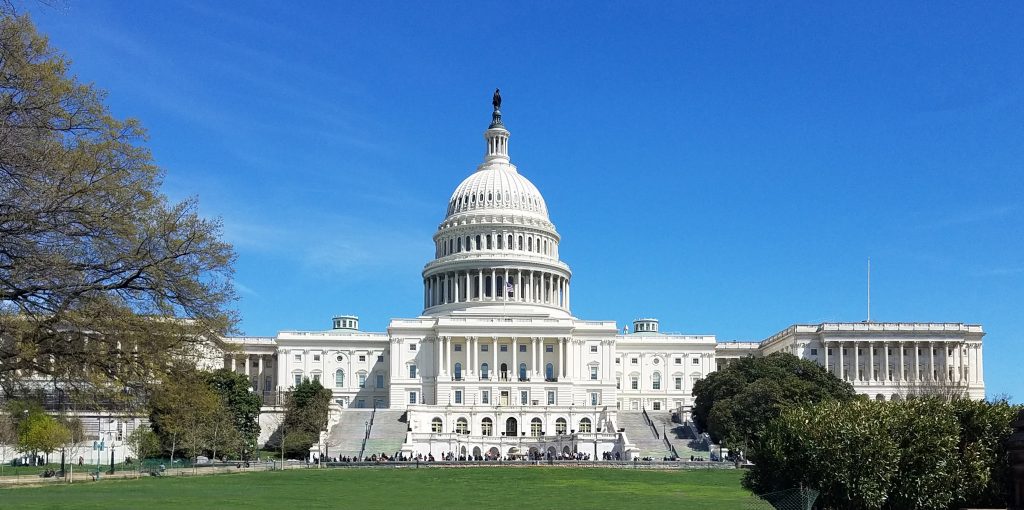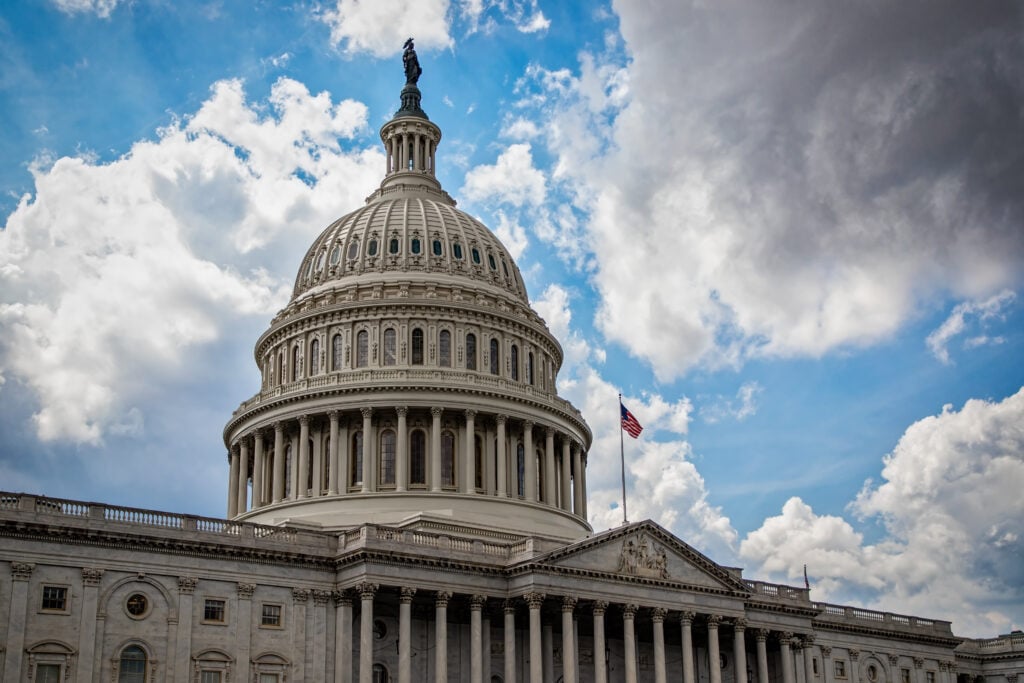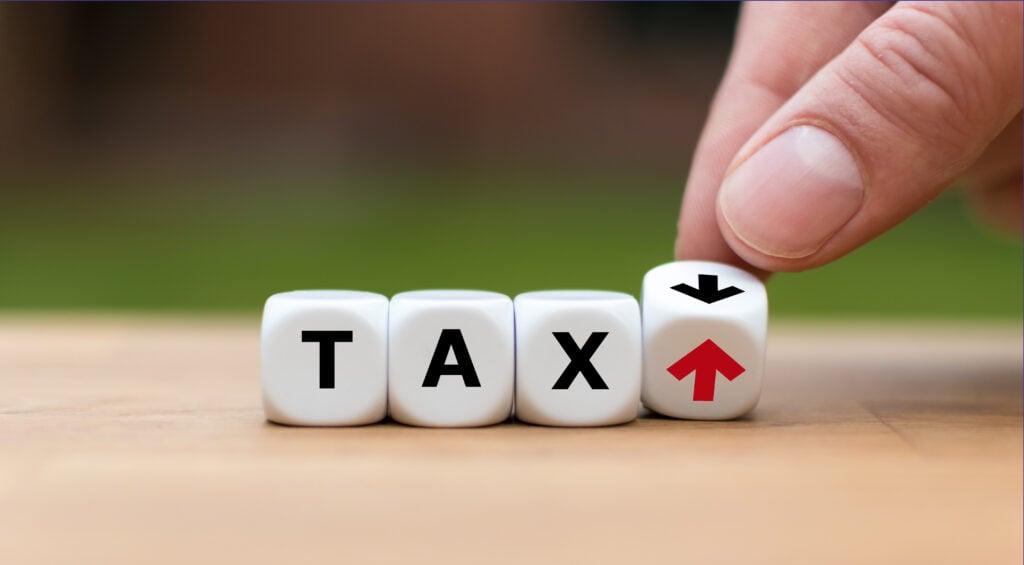
Blog
1292 posts
Why the States Have a Major Role to Play If We Want Tax Justice
February 9, 2023 • By Amy Hanauer

With fears of gridlock in a divided Washington, tax justice champions are building momentum in other places where there's dire need for better tax policy: the states. We can upgrade communities across the country by making 2023 a year to win tax improvements in statehouses.
State of the Union Likely to Continue Progress on Tax Justice
February 7, 2023 • By Amy Hanauer

After decades of Presidents who ran away from taxes, it’s a sea change to have a chief executive who understands that the rich should pay their fair share, extremely profitable corporations should pay their fair share, and the public sector should have revenue to invest in problems – like climate change and healthcare – that will only be solved with pathbreaking public action.
State Rundown 2/1: February Brings New (and Some Old) Tax Policy Conversations
February 1, 2023 • By ITEP Staff

Tax bills across the U.S. are winding their way through state legislatures and governors continue to set the tone for this year’s legislative sessions...
By Fighting Audit Bias, Funding for Tax Enforcement Can Advance Racial Equity
February 1, 2023 • By Jon Whiten

Black households are between 2.9 and 4.7 times more likely to be audited by the Internal Revenue Service than non-Black households. This disparity is driven in part but not wholly by a lack of resources at the IRS, which itself is driven by years of budget cuts the agency has faced.
State Rundown 1/26: Tax Season Brings With it Reminder of EITC’s Impact
January 26, 2023 • By ITEP Staff
Tax season has officially kicked off and with Earned Income Tax Credit (EITC) Awareness Day right around the corner, it serves as another reminder for how important the EITC is...
State Rundown 1/19: ITEP Provides a Roadmap for Equitable Tax Goals in 2023
January 19, 2023 • By ITEP Staff

State legislatures are buzzing as leaders and lawmakers jockey to advance their 2023 goals...

Lawmakers in seven states will introduce legislation this week to tax wealth in a new coordinated effort to combat ever-increasing income and wealth inequality. The bills couldn’t come at a better time, as those at the very top continue to pull apart from the rest of us and far too many states contemplate piling on to this runaway inequality with seemingly endless tax cuts for those at the top.
State Lawmakers Should Break the 2023 Tax Cut Fever Before It’s Too Late
January 18, 2023 • By Miles Trinidad

Despite mixed economic signals for 2023, including a possible recession, many state lawmakers plan to use temporary budget surpluses to forge ahead with permanent, regressive tax cuts that would disproportionately benefit the wealthy at the expense of low- and middle-income households. These cuts would put state finances in a precarious position and further erode public investments in education, transportation and health, all of which are crucial for creating inclusive, vibrant communities where everyone, not just the rich, can achieve economic security and thrive. In the event of an economic downturn, these results would be accelerated and amplified.
Momentum Behind State Tax Credits for Workers and Families Continues in 2023
January 18, 2023 • By Miles Trinidad

Refundable tax credits are an important tool for improving family economic security and advancing racial equity, and there is incredible momentum heading into 2023 to boost two key state credits: the Child Tax Credit and the Earned Income Tax Credit.
National Taxpayer Advocate: Infusion of New IRS Funding a ‘Gamechanger’ for Taxpayers
January 17, 2023 • By Jon Whiten

A new report from the National Taxpayer Advocate – part of an independent oversight arm inside the IRS – found that the agency struggled in 2022 with timely processing of tax returns and refunds, responding to taxpayer correspondence quickly, and answering phone calls. It expects these issues to improve in 2023, thanks in part to the influx of $80 billion in new funding from last year’s Inflation Reduction Act, which the Advocate’s office calls a “gamechanger” for Americans.
GAO Report Confirms: Trump Tax Law Cut Corporate Taxes to Rock Bottom
January 13, 2023 • By Steve Wamhoff

A new report from the Government Accountability Office finds the average effective federal income tax rate paid by large, profitable corporations fell to 9 percent in the first year the Trump tax law was in effect, and the share of such companies paying nothing at all rose to 34 percent that year.
State Rundown 1/11: Governors Ready to Talk Tax in 2023 State Addresses
January 11, 2023 • By ITEP Staff

Governors have begun their annual trek to the podium in statehouses across the U.S. to lay out their visions for 2023, and so far, taxes look like they will play a major role in debates throughout state legislative sessions...
“Fair Tax” Plan Would Abolish the IRS and Shift Federal Taxes from the Wealthy to the Rest of Us
January 11, 2023 • By Steve Wamhoff

The "Fair Tax" bill would impose a 30 percent federal sales tax on everything we buy – groceries, cars, homes, health care - and lead to a giant tax shift from the well-off to everyone else.
New House Rules: Low Taxes for the Wealthy on Cruise Control, Tax Credits for Working People Face Roadblock
January 10, 2023 • By Joe Hughes

Two new rules will hamper the new Congress’s ability to pass tax legislation in the next two years. One requires a supermajority for legislation that increases income tax rates, and the other requires cuts to mandatory spending programs—like Medicare, Social Security, veterans’ benefits or unemployment insurance—in exchange for changes to the Child Tax Credit or Earned Income Tax Credit that would mostly help low-income families.

The “Family and Small Business Taxpayer Protection Act” would rescind 90 percent of the new funding for the IRS included in last year’s Inflation Reduction Act. This would eliminate the new law’s $45.6 billion to enforce the tax code for people making more than $400,000 and repeal an additional $26 billion in IRS funding that would include, among other things, a pilot for a free e-file program to make it easier for people with relatively simple tax returns to file. The slash-and-burn bill comes just weeks after Republicans forced a 2 percent cut in annual IRS funding as part of…

The new year often brings with it new goals and a desire to take on complex problems with a fresh perspective. Unfortunately, that doesn’t always apply to state lawmakers when considering tax policy...

Congress should unite around a basic principle that Republican, Democratic, and independent voters support: the wealthiest, whether they are presidents, CEOs, or just rich heirs, should pay their fair share. Using Trump's tax maneuvering as a guidebook could make the tax code much fairer for all of us.
The European Union Moves Forward on Global Minimum Tax. Time for the U.S. to Follow.
December 21, 2022 • By Joe Hughes

The European Union has reached unanimous agreement to implement a global minimum tax beginning in 2024. With the EU and UK fully on board, it's time for Congress to follow suit and implement the plan negotiated by the Biden administration. Doing so would improve the corporate tax system here and around the world while making the United States economy stronger and more competitive.
The Tax Deal That Wasn’t: Congress Decides Corporate Tax Cuts Are Too Expensive if it Means Also Helping Children
December 20, 2022 • By Joe Hughes

Congressional leaders announced their long-awaited omnibus spending package which will fund the government through September 2023. The good news: the bill does not include needless corporate tax giveaways. The bad news: it also leaves out any expansion of the child tax credit.

Covering federal, state, and corporate tax work, here are our top 5 charts of 2022. It’s worth noting that the biggest tax news of 2022 – the adoption of a federal 15 percent corporate minimum tax in the Inflation Reduction Act – should make some of these charts look much better after the new law is implemented.
State Rundown 12/15: State Priorities for 2023 Begin to Take Shape
December 15, 2022 • By ITEP Staff

State leaders have begun to release budget projections for 2023 and a familiar theme has emerged once again: big revenue surpluses, which have many state lawmakers pushing for another round of tax cuts despite the monumental challenges that we as a country face that call for sustainable revenues...

Any tax legislation enacted before this Congress ends should prioritize policies that have a proven track record of helping workers and children rather than policies that cut taxes for corporations or for individuals who are already well-off. It's not clear right now whether lawmakers will do that - or whether they will enact any tax legislation at all before the year ends, but here we take a look at the key tax issues that lawmakers are discussing.
Lawmakers Seek to Extend Tax Break for “Research” that Corporations Use to Develop Frozen Foods, New Beer Flavors, Casino Games and Tax Avoidance
December 8, 2022 • By Steve Wamhoff

If Congress creates a tax break to encourage businesses to conduct research that benefits society, should Netflix be eligible for it? There is no shame in binge-watching Stranger Things or Bridgerton or The Crown, but how many of us really think Netflix deserves a tax break for whatever “research” the company did to provide this […]
Reversing the Stricter Limit on Interest Deductions: Another Huge Tax Break for Private Equity
December 6, 2022 • By Steve Wamhoff

Private equity is doing fine on its own and does not need another tax break. Congress should keep the stricter limit on deductions for interest payments —one of the few provisions in the 2017 tax law that asked large businesses to pay a little bit more.
Bipartisan Retirement Proposals Are Mostly Just More Tax Cuts for the Wealthy
December 5, 2022 • By Steve Wamhoff

The EARN Act and SECURE Act 2.0, two bipartisan retirement bills working their way through Congress, are major disappointments. They would mainly provide more tax breaks for the well-off who will most likely retire comfortably regardless of what policies Congress enacts. The bills would provide modest assistance for those who really need help to save.
